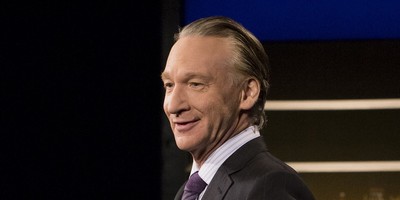WASHINGTON -- Gas prices continue to soar, up to a national average of $3.81 a gallon in the past week, hitting a high of $4.35 per gallon in some parts of the country.
There's increasing speculation among oil experts that prices could approach $5 a gallon, which would squeeze consumer spending, sandbag a still-vulnerable economy and further threaten President Obama's dwindling chances of a second term.
But at this point in the election cycle, there's very little, if anything, he can do about it, energy analysts say.
"There's nothing the president can do that's going to alleviate the gasoline price rise or reduce oil imports by another one million barrels per day," says Charles Ebinger, director of the Energy Security Initiative at the Brookings Institution.
If this election is going to be about the economy -- and Rick Santorum is the only one who doesn't believe this -- then the price of gas may be the most important statistic in the 2012 election, next to who can win 270 electoral votes on Nov. 6.
The Federal Reserve Board said Tuesday it expects higher gas prices to boost inflation, and there is growing evidence of that. The Labor Department reported Thursday that the Producer Price Index rose 0.4 percent last month.
The Obama administration maintains the "core" inflation index, which excludes food and gas prices, is mostly tame and says food prices even declined somewhat. Try telling that one to ordinary consumers who've seen their weekly paychecks stretched to the breaking point at the checkout counter and the gas pump.
Someone is to blame for this, and voters know who that is. Nearly 60 percent of Americans disapprove of Obama's handling of the economy, according to a Washington Post-ABC News poll (up from 53 percent last month). Nearly two-thirds said they don't like the way he's handling energy policies, either, particularly gas prices.
Recommended
Former Democratic governor Jennifer Granholm, who raised taxes on Michigan's struggling economy when it was in the pits of recession, thinks it is "totally ridiculous" to blame the president for the rise in oil prices.
But former Republican governor John Engler, who led Michigan in better times, begs to differ. He points to a long list of political actions Obama has taken in the past three years that has brought us to this crisis.
Among them: Denying oil exploration on U.S. public lands in Alaska and elsewhere where there are large reserves that would boost domestic oil supplies and reduce gas prices; imposing moratoriums on deep-water drilling in the western Gulf of Mexico because of the BP disaster, and slowing the approval of new permits ever since; declaring the Atlantic and Pacific coasts off-limits to offshore drilling to pander to his liberal base; and blocking TransCanada's Keystone XL oil pipeline to the Gulf Coast, which would transport 700,000 barrels of oil per day.
Engler, who is president of the Business Roundtable, expects higher gas prices to be a major election issue this year.
"It's real simple. I mean, gas prices have gone up 100 percent basically from (Obama's) inauguration day to present time. It's not the only issue, but it is a marker," he said recently on the ABC News show "This Week."
But it isn't only Obama's Republican critics who are flogging him for a failed three-year record on the economy.
Several weeks ago, The New York Times' arch-liberal economics columnist Paul Krugman made it clear he was not impressed with the economy's nascent recovery.
Despite the cheerleading by the network news shows every time the government announces its unemployment numbers, Krugman growls that the "economy remains deeply depressed."
"As the (labor union funded) Economic Policy Institute points out, we started 2012 with fewer workers employed than in January 2001 -- zero growth after 11 years, even as the population, and therefore the number of jobs we needed, grew steadily. The institute estimates that even at January's pace of job creation it would take us until 2019 to return to full employment." Ouch.
If the White House and Obama's campaign strategists really think the economy has recovered enough to ensure the president's re-election, they had better read Krugman's review of their policies.
Yes, "we're doing a bit better, but no, things are not OK -- not remotely OK," he says. "This is still a terrible economy, and policy makers should be doing much more than they are to make it better."
Mitt Romney, who knows a thing or two about turning around businesses and creating jobs, and who's made Obama's failed record on the economy his No. 1, 2, 3, 4 and 5 issues, couldn't have said it better.
Krugman, however, is hopelessly tied to the same kinds of Keynesian, pump-priming spending policies that Obama has been pursuing, only Krugman would double it, maybe triple it.
But J.D. Foster, a senior fellow in economic policy at the Heritage Foundation, responds to Krugman's justifiable criticisms by reminding us of the deep 1981-'82 recession and how we came roaring out of that period because of President Reagan's across-the-board tax cuts.
"Yes, the (Obama) economy is growing," but at a very pedestrian annual growth rate, says Foster. Last year the economy grew at a feeble 1.6 percent rate, fourth quarter over fourth quarter.
"Coming out of the last comparably deep recession, the (Reagan) economy grew at an average annual rate of 6.5 percent for the first two years of recovery."
The difference between now and then is that Reagan "put in place policies that unleashed the economy from some of its Washington shackles," Foster says.
Obama added more shackles, more debt, "more regulations and, worse, more gray uncertainty about the future."
"Is it unfair to point out Barack Obama is no Ronald Reagan when it comes to economic policy and results?" Foster asks. "No, it's precisely the point."
























Join the conversation as a VIP Member